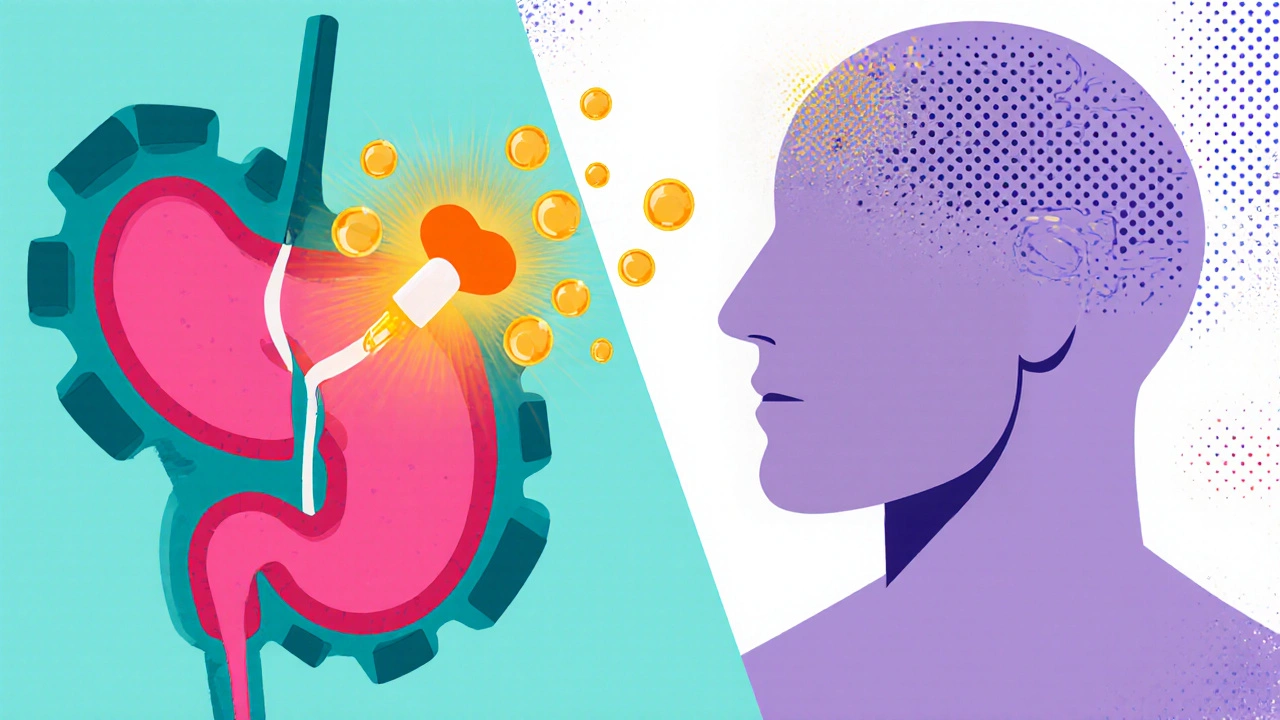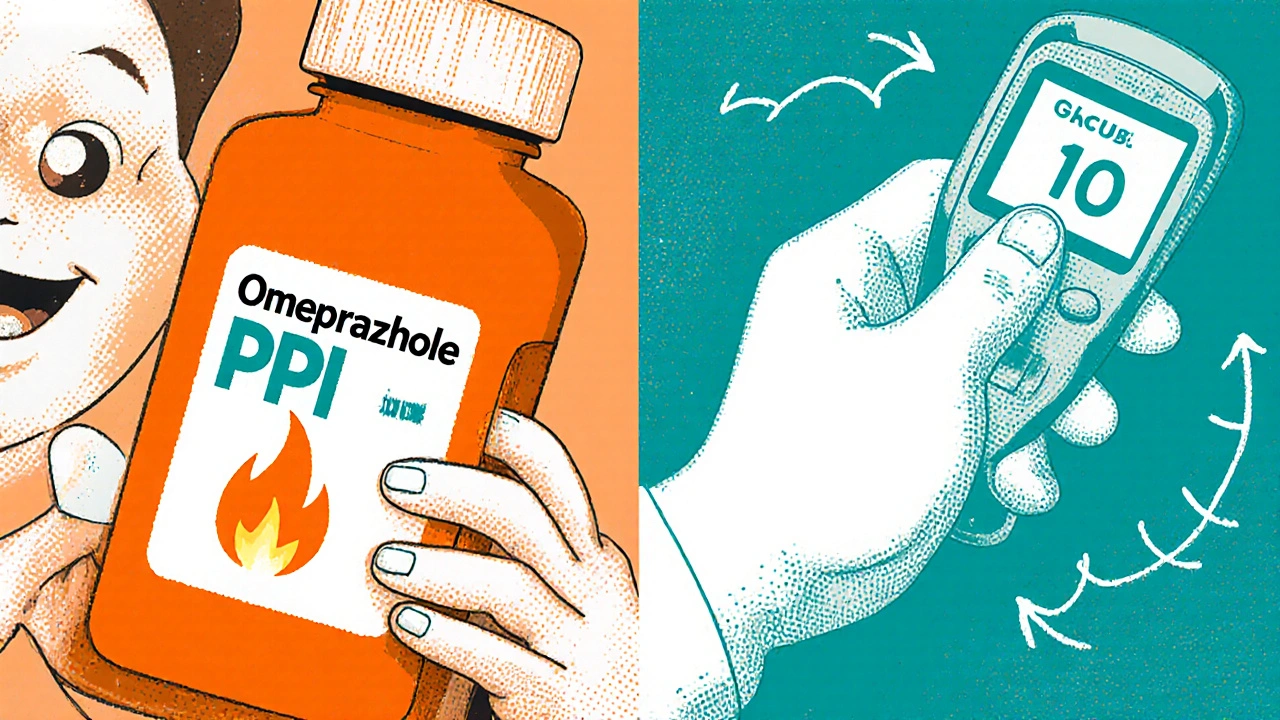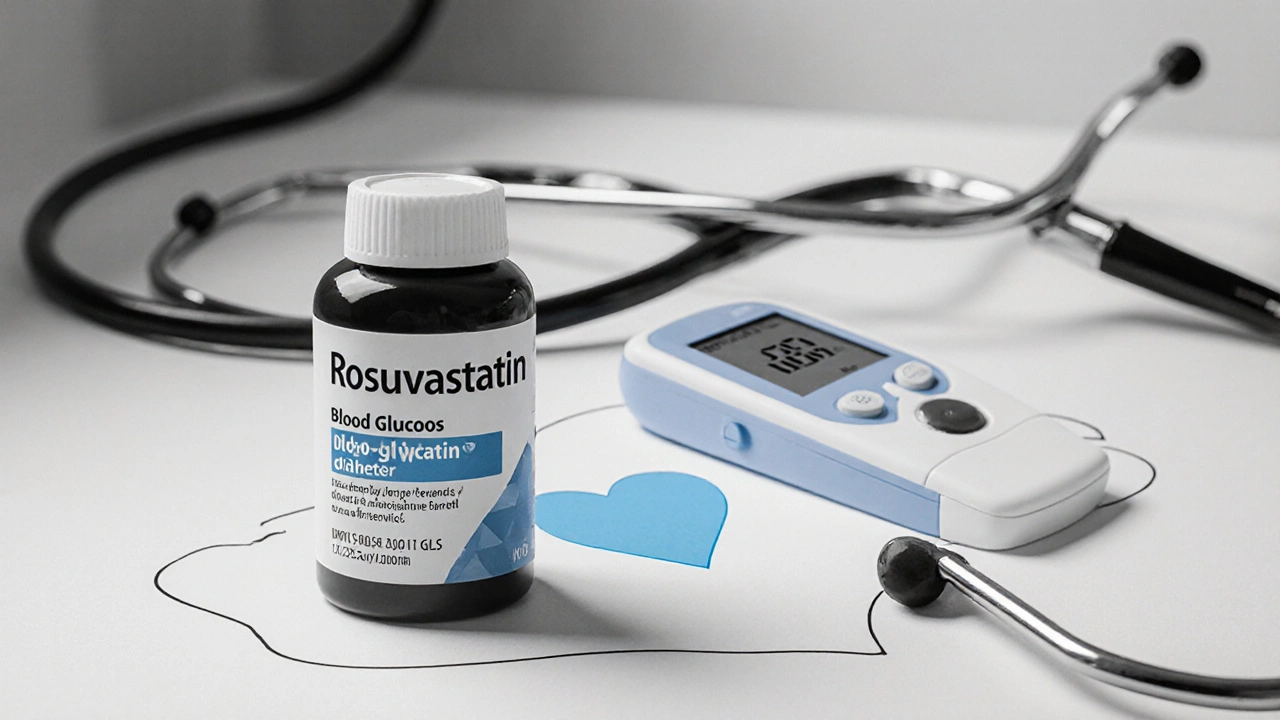GLP-1 Agonists for Weight Loss: Real Benefits Beyond Blood Sugar Control
Discover how GLP-1 agonists work, their proven weight‑loss results, cardiovascular benefits, side‑effects, and practical tips for starting therapy.
Continue ReadingHigh blood sugar can sneak up on you. It may not cause obvious symptoms early, but it slowly harms nerves, eyes, kidneys, and the heart. That makes daily habits more powerful than any single pill. If you already have diabetes, small, consistent changes beat dramatic one-off fixes.
Check your blood sugar the way you check your weight: regularly and without judgment. Aim for the test times your doctor recommends—fasting, before meals, and sometimes after meals. Keep a simple log on your phone or a paper notebook. Patterns matter more than single numbers: note what you ate, how much you moved, and how you felt.
Food matters, but you don't have to follow a perfect diet. Start by trimming portions and choosing whole foods over highly processed options. Swap sugary drinks for water or unsweetened tea. Include lean protein and vegetables at each meal to slow glucose spikes. Walk after meals when you can. Fifteen to thirty minutes helps lower post-meal sugars.
Before meals: test if advised and use that number to pick the portion size. Two hours after eating: this shows how your body handled the meal. If levels are high, note what you ate and reduce carbs or add movement next time. If levels trend high across days, call your clinician—don’t wait for complications.
Medication can be lifesaving. Metformin is often the first choice for type 2 diabetes; it lowers liver glucose and usually has few side effects. Insulin is necessary for type 1 diabetes and sometimes for type 2. Newer drugs like SGLT2 inhibitors and GLP-1 receptor agonists can lower blood sugar and help weight loss, but they can cost more. Never start or stop medicines without talking to your prescriber.
Watch your feet, eyes, and blood pressure. Small problems go big when ignored. See your dentist and eye doctor once a year, or more if you get warnings. Get vaccinations your doctor recommends—flu and pneumonia shots reduce risks. If you notice numbness, wounds that don't heal, sudden vision changes, or unplanned weight loss, get medical help quickly.
Start with one habit this week—swap a sugary drink for water, add a 15-minute walk after dinner, or test before a meal. Track the change for a few days and keep what helps. If you want more on meds, recipes, or device reviews, check our diabetes articles and ask questions on the comment section.
Alcohol affects blood sugar two ways: it can raise sugar when mixed with sweet drinks, and it can cause low sugar hours later if you drink on an empty stomach. If you drink, choose dry wines or spirits and always eat a small snack. Sleep matters too—poor sleep raises insulin resistance. Aim for consistent bedtime and treat sleep problems with your clinician.
Keep a list of meds, allergies, and emergency contacts in your wallet and phone so teams act fast.

Discover how GLP-1 agonists work, their proven weight‑loss results, cardiovascular benefits, side‑effects, and practical tips for starting therapy.
Continue Reading
Learn how Omeprazole may affect blood sugar, what research shows, and practical steps for diabetes patients using this common heartburn drug.
Continue Reading
Learn how rosuvastatin interacts with diabetes, its impact on blood sugar, and practical tips to stay safe while reducing heart risk.
Continue Reading